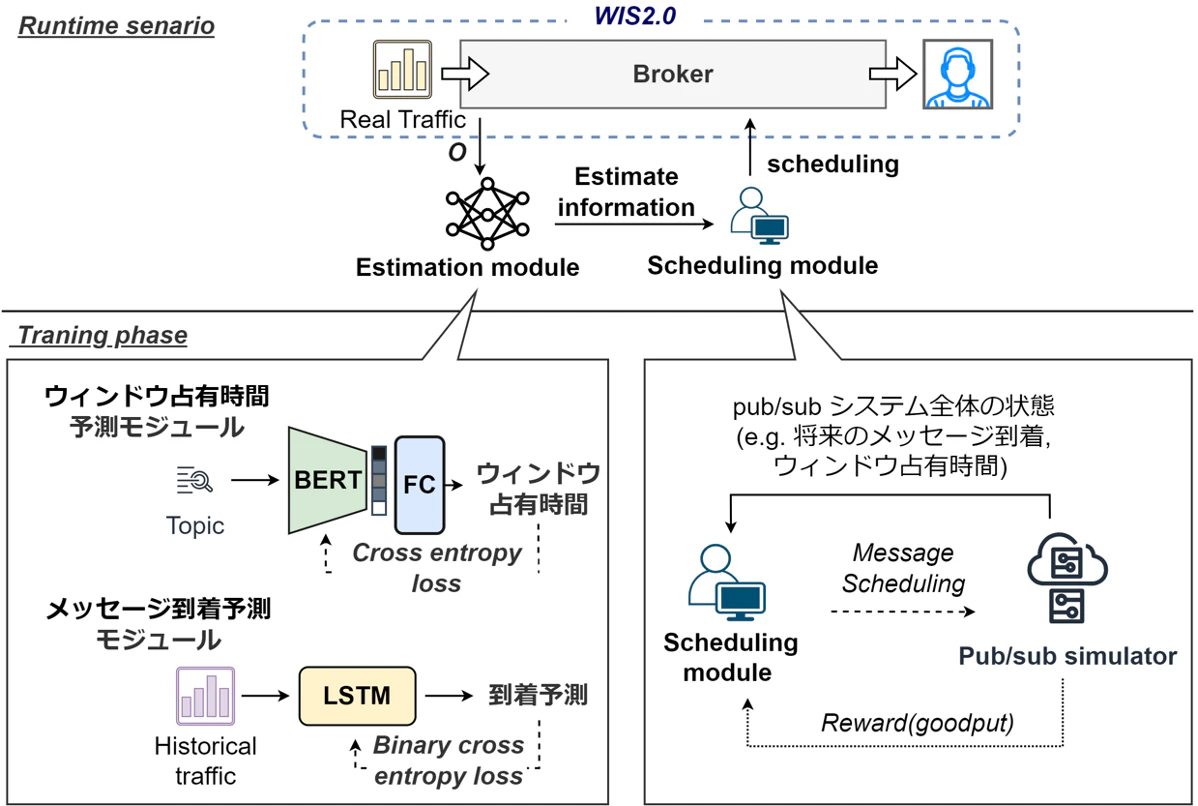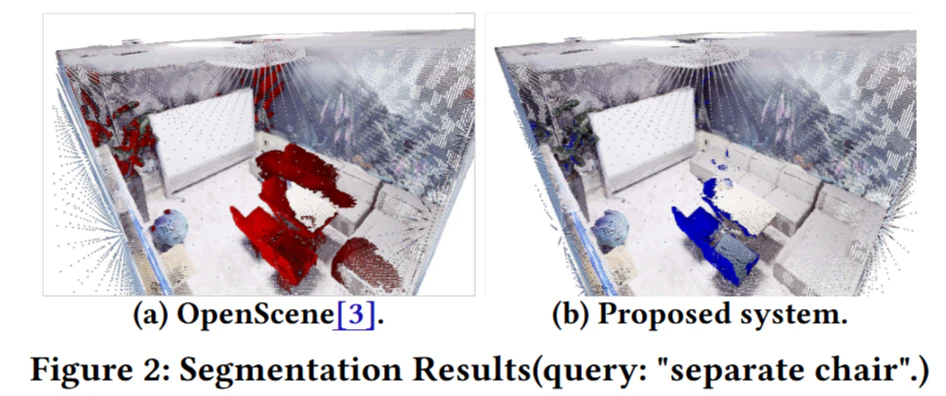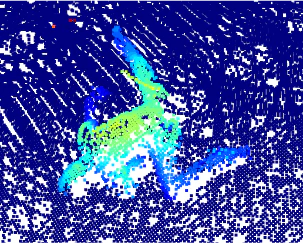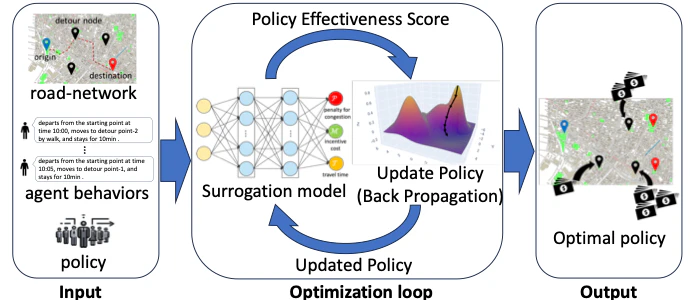Identifying humans and things (i.e., target identification) is essential for various applications such as inventory management, working time management, and security. RFID is often used for this purpose, but its deployment cost of RFID readers is high. On the other hand, sensing using Wi-Fi (i.e., wireless sensing) has been attracting attention because of its low deployment cost, but target identification is one of the key challenges in wireless sensing because wireless sensing does not assume attaching any device to targets.
For low-cost target identification, our goal is to design a method for identifying people and things using Wi-Fi without training effort nor additional devices. For this goal, we focus on a Wi-Fi imaging technique that captures a spatial distribution of signal strength received by an antenna array like a camera. We aim to realize target identification by generating a pattern unique to reflected waves using conductive materials such as copper tape and conductive threads that significantly affect on reflected radio signals. Then, we identify the target by capturing the unique reflection pattern by using Wi-Fi imaging. Since the imaging result is greatly affected by multi-path fading, it changes depending on the relative positions between the tag, the transmitter, and the array. Therefore, we assume an environment where a target moves in a pre-defined direction (e.g., a door and a passage) and identify tags by LSTM (Long Short Term Memory) using the time series of the images without their positions. 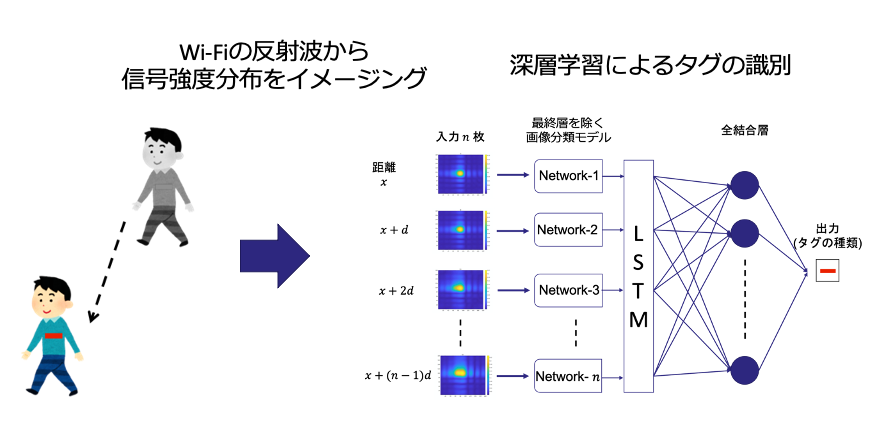
Published Paper
- 森田幸歩, 前田透, 中川善博, 内山彰, & 東野輝夫. (2020). Wi-Fi 電波を用いたイメージングによる対象識別法の検討. マルチメディア, 分散協調とモバイルシンポジウム 2203 論文集, 2020, 1271-1279.
- 森田幸歩, 中川善博, 内山彰, & 東野輝夫. (2021). 対象識別に向けた WiFi イメージングのシミュレーションによる検討. 電子情報通信学会技術研究報告; 信学技報, 120(315), 57-62.
- 森田幸歩, 内山彰, & 東野輝夫. (2021). 時系列 WiFi イメージを用いた深層学習によるタグ識別法の検討. 第 29 回マルチメディア通信と分散処理ワークショップ論文集, 139-146.
